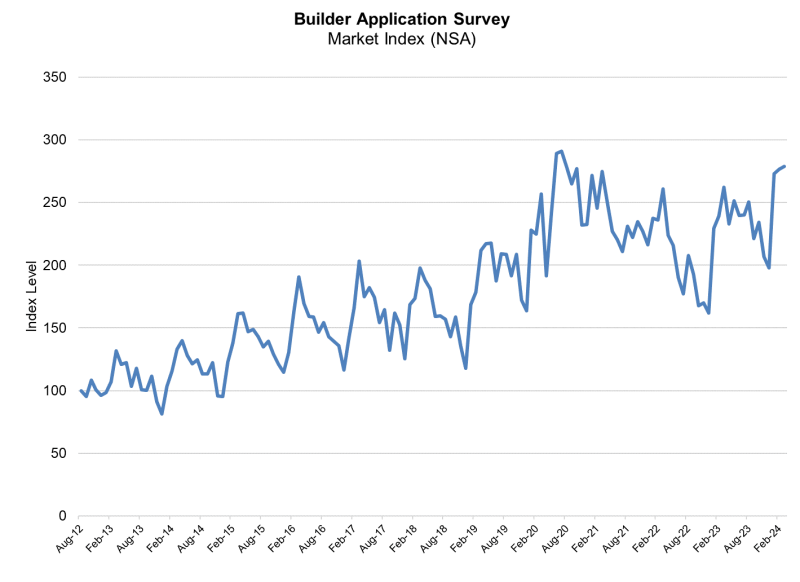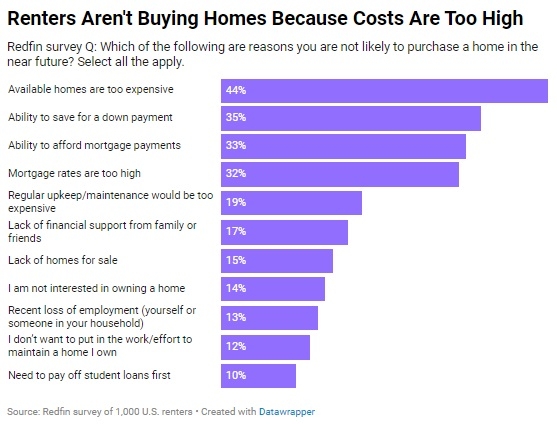Advertisement
The new bankruptcy reform law: How will consumers be affected?
Alt-A is here to stayDavid DePodestanon-conforming, sub-prime, unconventional financing, financial planning
As a direct result of the post-refinance boom, many brokers
today are enlisting nontraditional methods of lending in the face
of increased competition. Along these lines, a category known as
alt-A, the alternative to A-paper loans given to borrowers with
good credit, is quickly increasing in popularity for brokers across
the country.
For a variety of reasons, alt-A loans don't conform to the
lending guidelines set forth by Fannie Mae and Freddie Mac.
Stated-income mortgages, interest-only loans, high loan-to-value
ratios and increased cash flow all fall under the alt-A umbrella.
Many borrowers benefit from this type of unconventional financing,
including the growing majority of self-employed workers, those
relying on commissions, tips or bonuses, and those who have
difficulty documenting their full income, often because of
tax-related complexities.
Despite the buzz surrounding alt-A, some brokers are hesitant to
accept this as a legitimate product offering. Many have been paying
close attention to appraisals and income statements and have noted
an existing product gap. Because alt-A is non-conforming, income
statements and appraisals become especially important in lieu of
normal verifications.
Brokers should invest the time it takes to learn how alt-A paper
may benefit their operations. A litmus test survey of a handful of
brokers in the industry indicates that alt-A will be a long-term
mortgage instrument.
Craig Montgomery, branch manager for Middleburg Heights,
Ohio-based Allied Home Mortgage Capital Corporation, has found
alt-A programs to be extremely accommodating for borrowers who do
not qualify for conventional financing.
"Alt-A programs provide borrowers financing options that would
otherwise not be available to them because they may not meet
standard conventional guidelines," said Montgomery. "Alt-A loans
currently comprise 65 percent of our entire pipeline, which is a
significant increase from the 40 percent it occupied last
year."
Allied Home Mortgage Capital Corporation, which closes five
million loans per month, has used alt-A programs for two-and-a-half
years.
"I was approached by a retired couple who had been turned down
many times due to their high debt-to-income ratio," said
Montgomery. "This couple was on a fixed income but had proven over
time to be credit-worthy borrowers. This couple was approved
through a no-ratio alt-A loan program and allowed an interest-only
payment option to be attached to the loan for a 10-year period.
This program allowed the couple an additional $100 per month of
disposable income for the next 10 years, which helped them out
tremendously."
Larry O'Neil, president of Hingham, Mass.-based Custom Financial
Mortgage, has been in the business for 11 years. Custom Financial
Mortgage has traditionally handled both A- and B-paper loans and,
over the last few years, has begun using alt-A loan programs that
enable the company to reach more borrowers.
"Borrowers generally receive pricing on par with that of other
A-paper lenders, without all of the paperwork that may be required
elsewhere," said O'Neil. "It also allows borrowers who may not have
traditional income documentation to purchase or refinance without
being penalized by high mortgage rates. This is especially helpful
to our self-employed borrowers."
Borrowers who have used Park City, Utah-based Turnbury Mortgage
have experienced the benefits of streamlined, no-documentation
loans with interest-only options on all programs.
"I have had multiple borrowers who would otherwise have been
forced to a B/C program were it not for alt-A programs," said Kyle
Arnold, president of Turnbury Mortgage. "Borrowers love the fact
that I can process an no-income, no-asset at a 65 percent
loan-to-value with as little as a .25 percent fee."
Each broker surveyed has experienced an increased volume of
alt-A loans over the last two years since interest rates have
risen. The borrower may pay a higher interest rate up front, but
will likely benefit from increased cash flow in the long term.
Conforming products don't offer interest-only options that allow
for increased cash flow. Due to higher cash limits, people are
starting to use equity in their homes. Alt-A is an important topic
for borrowers in light of financial planning. It isn't always about
cash flow. For many brokers, this presents an expanded thought to
mortgage lending.
Brokers market alt-A products differently than conforming loans.
Because alt-A presents the opportunity to fold over into financial
planning, many brokers are shifting their focus when approaching
referral sources. Brokers are now obtaining referrals that can
benefit from an array of products to accommodate individual
needs.
Alt-A is an up-and-coming loan program type and brokers in the
mortgage industry are ready for a change. The current mortgage
market is ripe with opportunities for brokers who join the scores
of others who are enjoying the benefits that come with alt-A
financing.
David DePodesta is executive vice president of wholesale
lending at Union Federal Bank. He may be reached at (260)
434-8662.
About the author





